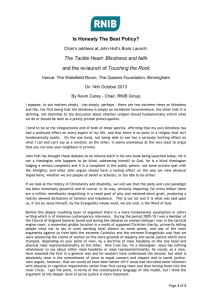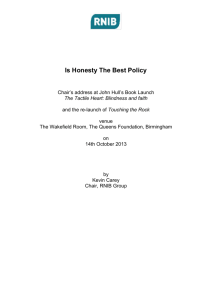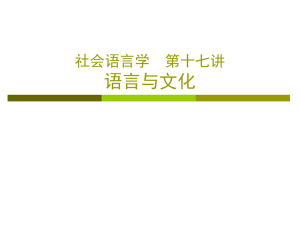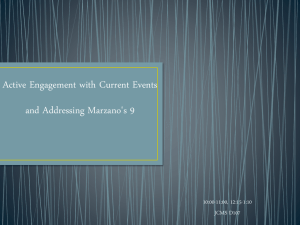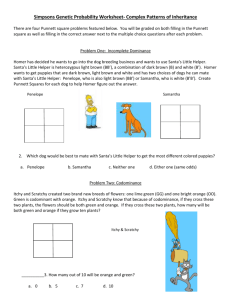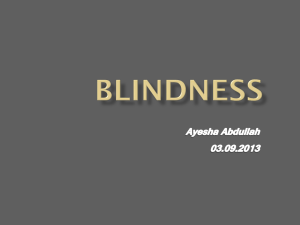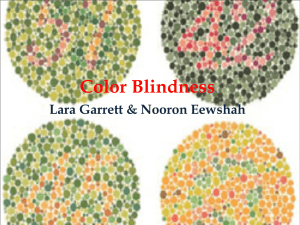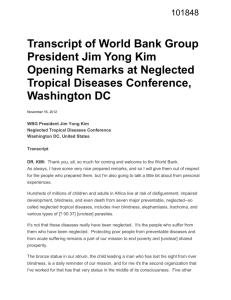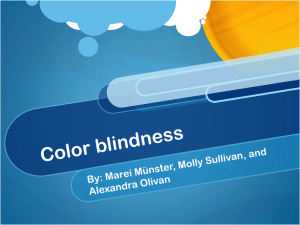here
advertisement
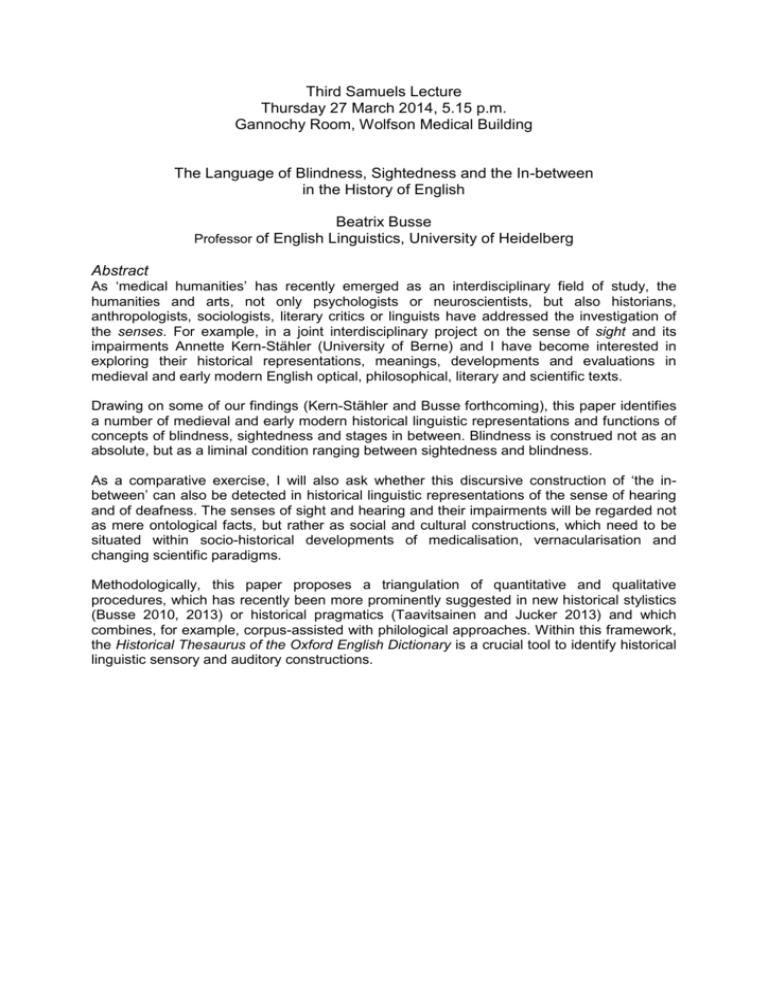
Third Samuels Lecture Thursday 27 March 2014, 5.15 p.m. Gannochy Room, Wolfson Medical Building The Language of Blindness, Sightedness and the In-between in the History of English Beatrix Busse Professor of English Linguistics, University of Heidelberg Abstract As ‘medical humanities’ has recently emerged as an interdisciplinary field of study, the humanities and arts, not only psychologists or neuroscientists, but also historians, anthropologists, sociologists, literary critics or linguists have addressed the investigation of the senses. For example, in a joint interdisciplinary project on the sense of sight and its impairments Annette Kern-Stähler (University of Berne) and I have become interested in exploring their historical representations, meanings, developments and evaluations in medieval and early modern English optical, philosophical, literary and scientific texts. Drawing on some of our findings (Kern-Stähler and Busse forthcoming), this paper identifies a number of medieval and early modern historical linguistic representations and functions of concepts of blindness, sightedness and stages in between. Blindness is construed not as an absolute, but as a liminal condition ranging between sightedness and blindness. As a comparative exercise, I will also ask whether this discursive construction of ‘the inbetween’ can also be detected in historical linguistic representations of the sense of hearing and of deafness. The senses of sight and hearing and their impairments will be regarded not as mere ontological facts, but rather as social and cultural constructions, which need to be situated within socio-historical developments of medicalisation, vernacularisation and changing scientific paradigms. Methodologically, this paper proposes a triangulation of quantitative and qualitative procedures, which has recently been more prominently suggested in new historical stylistics (Busse 2010, 2013) or historical pragmatics (Taavitsainen and Jucker 2013) and which combines, for example, corpus-assisted with philological approaches. Within this framework, the Historical Thesaurus of the Oxford English Dictionary is a crucial tool to identify historical linguistic sensory and auditory constructions.
